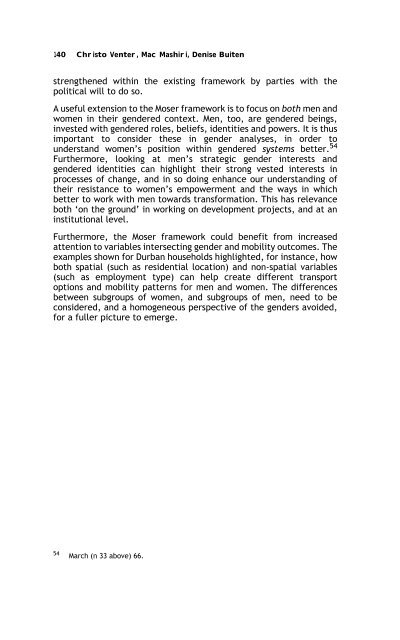Sex, Gender, Becoming - PULP
Sex, Gender, Becoming - PULP
Sex, Gender, Becoming - PULP
You also want an ePaper? Increase the reach of your titles
YUMPU automatically turns print PDFs into web optimized ePapers that Google loves.
140 Christo Venter, Mac Mashiri, Denise Buiten<br />
strengthened within the existing framework by parties with the<br />
political will to do so.<br />
A useful extension to the Moser framework is to focus on both men and<br />
women in their gendered context. Men, too, are gendered beings,<br />
invested with gendered roles, beliefs, identities and powers. It is thus<br />
important to consider these in gender analyses, in order to<br />
understand women’s position within gendered systems better. 54<br />
Furthermore, looking at men’s strategic gender interests and<br />
gendered identities can highlight their strong vested interests in<br />
processes of change, and in so doing enhance our understanding of<br />
their resistance to women’s empowerment and the ways in which<br />
better to work with men towards transformation. This has relevance<br />
both ‘on the ground’ in working on development projects, and at an<br />
institutional level.<br />
Furthermore, the Moser framework could benefit from increased<br />
attention to variables intersecting gender and mobility outcomes. The<br />
examples shown for Durban households highlighted, for instance, how<br />
both spatial (such as residential location) and non-spatial variables<br />
(such as employment type) can help create different transport<br />
options and mobility patterns for men and women. The differences<br />
between subgroups of women, and subgroups of men, need to be<br />
considered, and a homogeneous perspective of the genders avoided,<br />
for a fuller picture to emerge.<br />
54 March (n 33 above) 66.
















